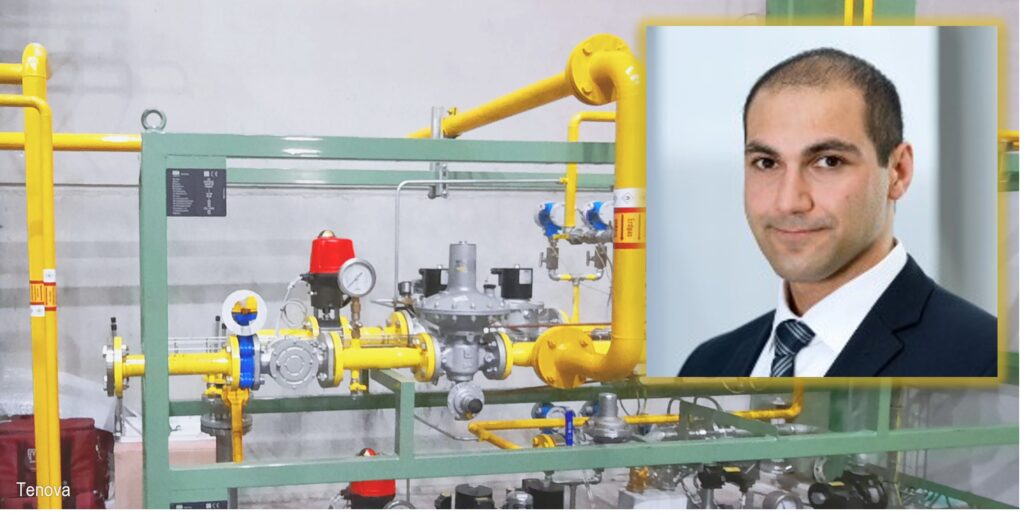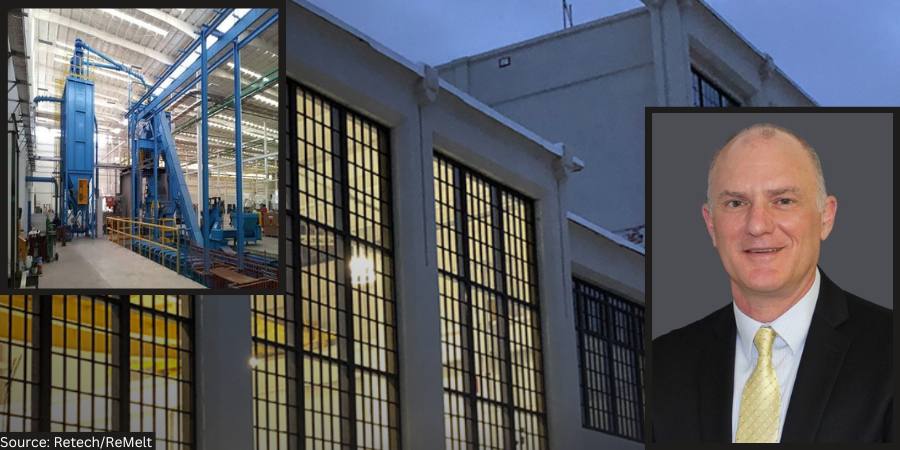
An Ultra Low NOx HPH®-flameless bell-type annealing plant at thyssenkrupp Hohenlimburg has achieved CO2-neutral heat treatment of precision strip.
Tenova LOI Thermprocess, a company which is part of Tenova, continues to prove that CO2-neutral heat treatment can go together with low nitrogen oxide (NOx) emissions in a cooperation project with thyssenkrupp Hohenlimburg GmbH. Tenova LOI Thermprocess is part of Tenova and is one of the leading companies supplying industrial furnace systems for the heat treatment of metals. Tenova, a Techint Group company, is as a worldwide partner for sustainable, innovative, and reliable solutions in the metals and the mining industries.
In bell-type annealing plants, which have so far been mainly operated with natural gas, precipitation and spheroidizing annealing of steel coils is carried out to specifically adjust the mechanical properties for subsequent rolling processes or the required product properties at the end customer.
At thyssenkrupp’s Hagen-Hohenlimburg site, Tenova LOI Thermprocess’s heating hoods with LOI’s patented Ultra low NOx HPH®-flameless concept has been used for around 12 years. By increasing air preheating temperatures to 1112°F (600°C), this technology has led to energy and therefore CO2 savings of up to 12%.

Project Manager and Process Engineer
Tenova LOI Thermprocess.
In a campaign involving several annealing cycles, a further step has been taken towards decarbonizing steel production as part of the joint project. In production trials, the fuel gas supply for the heat treatment of hot-rolled narrow strip was gradually converted from natural gas to up to 100% hydrogen. Tenova indicates that, for the first time in the world, 70 t of steel strip were heat treated in a bell-type annealing plant in a locally CO2‑neutral process. The flameless concept demonstrates its advantages here because despite the higher combustion temperature compared to natural gas and thus a tendency towards higher nitrogen oxide emissions, it results in remarkably low NOx emissions.
Using the bell-type annealing plant, up to 2600 kg of CO2 can be saved per annealing cycle by using regenerative produced hydrogen, while maintaining productivity and product properties.
“The combustion of hydrogen is technically more complex than the direct use of electricity or the combustion of natural gas. This project has provided us with further insights into the decarbonization of the bell-type annealing process and is helping us on our joint path towards the transformation to climate-neutral steel production,” says Dr. Gökhan Gula, project manager and process engineer at Tenova LOI Thermprocess.







